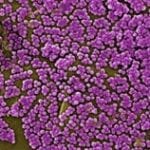 The National Institutes of Health, National Institute of Allergy and Infectious Diseases (NIAID) has announced a new funding effort to support research focused on characterization and validation of novel drug targets for development of new therapeutics against antimicrobial-resistant bacterial pathogens.
The National Institutes of Health, National Institute of Allergy and Infectious Diseases (NIAID) has announced a new funding effort to support research focused on characterization and validation of novel drug targets for development of new therapeutics against antimicrobial-resistant bacterial pathogens.
The initiative is designed to capitalize on the numerous potential drug targets identified through basic research on pathogenesis and the immunobiology of infectious diseases. It is recognized that basic researchers often uncover important pathways, molecular associations, or host-pathogen interactions that may represent viable therapeutic targets.
The effort seeks to stimulate characterization and validation of these potential therapeutic targets for early phase therapeutic discovery and development activities. Of particular interest is the development of innovative and creative assay methods and validation of potential therapeutic targets that have previously been described.
Projects eligible for support include target development for small molecule inhibitors, therapeutic antibodies and peptides, and adjunctive therapeutics targeting resistance mechanisms that may not perpetuate the spread of resistance.
Applications should specifically target bacterial pathogens for which the high incidence of disease is driving the spread of resistance and there are limited options for clinical intervention.
NIAID intends to commit $3.5 million in total costs in FY2014 to fund 15 to 20 applications in response to this FOA. Domestic and foreign entities of all types are eligible to apply.
Further details are available under RFA-AI-13-019. The application due date is July 18, 2013.
Image courtesy of Jeff Hageman, CDC


